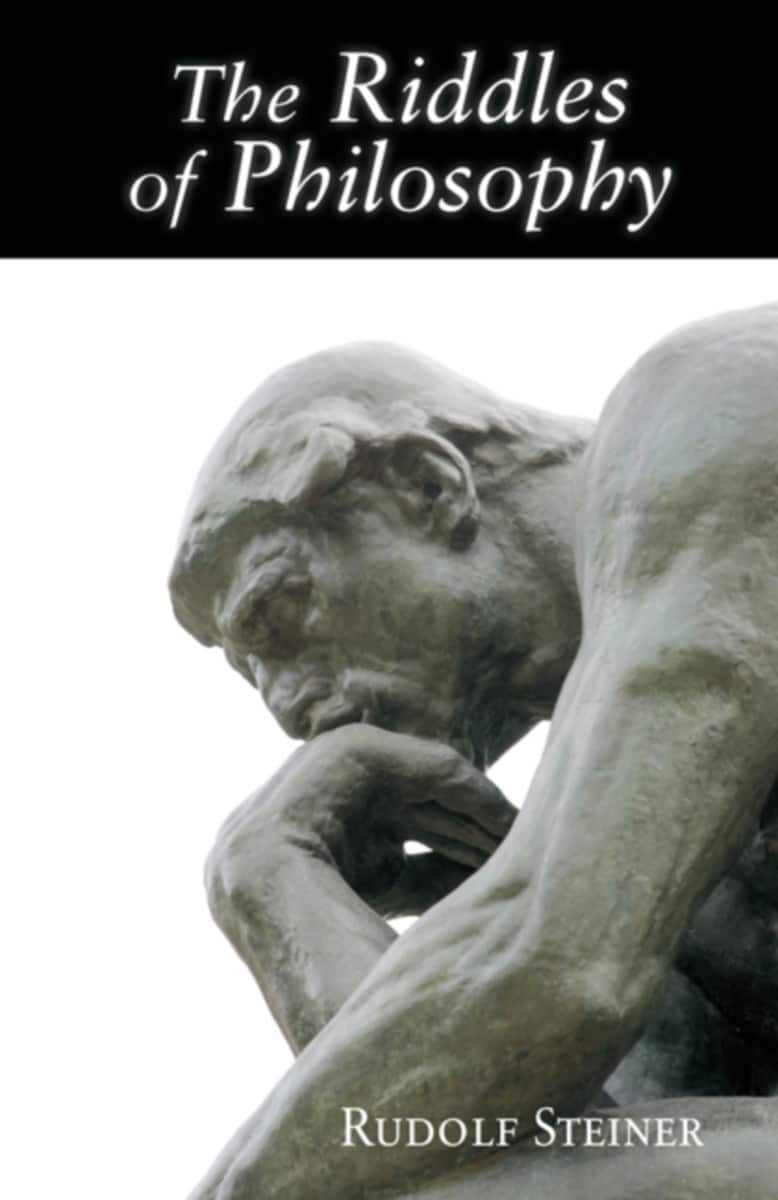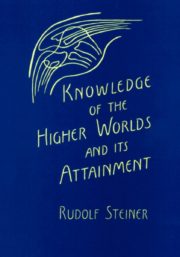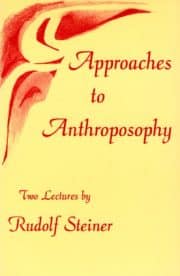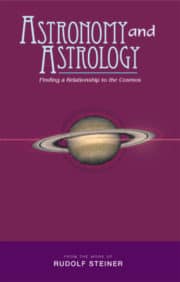The Riddles of Philosophy: Presented in an Outline of Its History
Written 1914, 1923 (CW 18)
Translator and Philosophy Professor Fritz Koelln describes this seminal work:
“Rudolf Steiner’s Riddles of Philosophy: Presented in an Outline of Its History is not a history of philosophy in the usual sense of the word. It does not give a history of the philosophical systems, nor does it present a number of philosophical problems historically. Its real concern touches on something deeper than this, on riddles rather than problems. Philosophical concepts, systems and problems are, to be sure, to be dealt with in this book. But it is not their history that is to be described here. Where they are discussed they become symptoms rather than the objects of the search. The search itself wants to reveal a process that is overlooked in the usual history of philosophy. It is the mysterious process in which philosophical thinking appears in human history. Philosophical thinking as it is here meant is known only in Western civilization. Oriental philosophy has its origin in a different kind of consciousness, and it is not to be considered in this book.
“What is new here is the treatment of the history of philosophic thinking as a manifestation of the evolution of human consciousness. Such a treatment requires a fine sense of observation. Not merely the thoughts must be observed, but behind them the thinking in which they appear.
“To follow Steiner in his subtle description of the process of the metamorphosis of this thinking in the history of philosophy we should remember he sees the human consciousness in an evolution. It has not always been what it is now, and what it is now it will not be in the future. This is a fundamental conception of Anthroposophy.”
C O N T E N T S:
Introduction by Fritz C. A. Koelln
Prefaces by Rudolf Steiner
PART ONE
1. Guiding Thoughts on the Method of Presentation
2. The World conception of the Greek Thinkers
3. Thought Life from the Beginning of the Christian Era to John Scotus Erigena
4. The World Conceptions of the Middle Ages
5. The World Conceptions of the Modern Age of Thought Evolution
6. The Age of Kant and Goethe
7. The Classics of World and Life Conceptions
8. Reactionary world Conceptions
9. The Radical World Conceptions
PART TWO
Introductory Remarks to the 1914 Edition
1. The Struggle over the Spirit
2. Darwinism and World Conception
3. The World as Illusion
4. Echoes of the Kantian Mode of Conception
5. World Conceptions of Scientific Factuality
6. Modern Idealistic World Conceptions
7. Modern Man and His World Conception
8. A Brief Outline of an Approach to Anthroposophy
Index
About the Author
Rudolf Steiner (1861–1925) was born in the small village of Kraljevec, Austro-Hungarian Empire (now in Croatia), where he grew up (see right). As a young man, he lived in Weimar and Berlin, where he became a well-published scientific, literary, and philosophical scholar, known especially for his work with Goethe’s scientific writings. At the beginning of the twentieth century, he began to develop his early philosophical principles into an approach to systematic research into psychological and spiritual phenomena. Formally beginning his spiritual teaching career under the auspices of the Theosophical Society, Steiner came to use the term Anthroposophy (and spiritual science) for his philosophy, spiritual research, and findings. The influence of Steiner’s multifaceted genius has led to innovative and holistic approaches in medicine, various therapies, philosophy, religious renewal, Waldorf education, education for special needs, threefold economics, biodynamic agriculture, Goethean science, architecture, and the arts of drama, speech, and eurythmy. In 1924, Rudolf Steiner founded the General Anthroposophical Society, which today has branches throughout the world. He died in Dornach, Switzerland.
Professor Fritz Carl August Koelln (1901–1986) was born in Hamburg, Germany on May 23, 1901. He received his PhD magna cum laude in 1927 from Hasmburg University. After immigrating to the US, he taught German for many years at Bowdoin College in Brunswick, Maine, where he gained a devoted following as an inspired teacher. The Koelln Room, where most German classes are taught at Bowdoin today, was dedicated in 1972 in his honor. He was also much-loved as the leader of an anthroposophic study group there for a number of years. He wrote articles and translated (with James Pettegrove) the classic The Philosophy of the Enlightment (1951). Professor Koelln passed away on September 20, 1986.












Reviews
There are no reviews yet